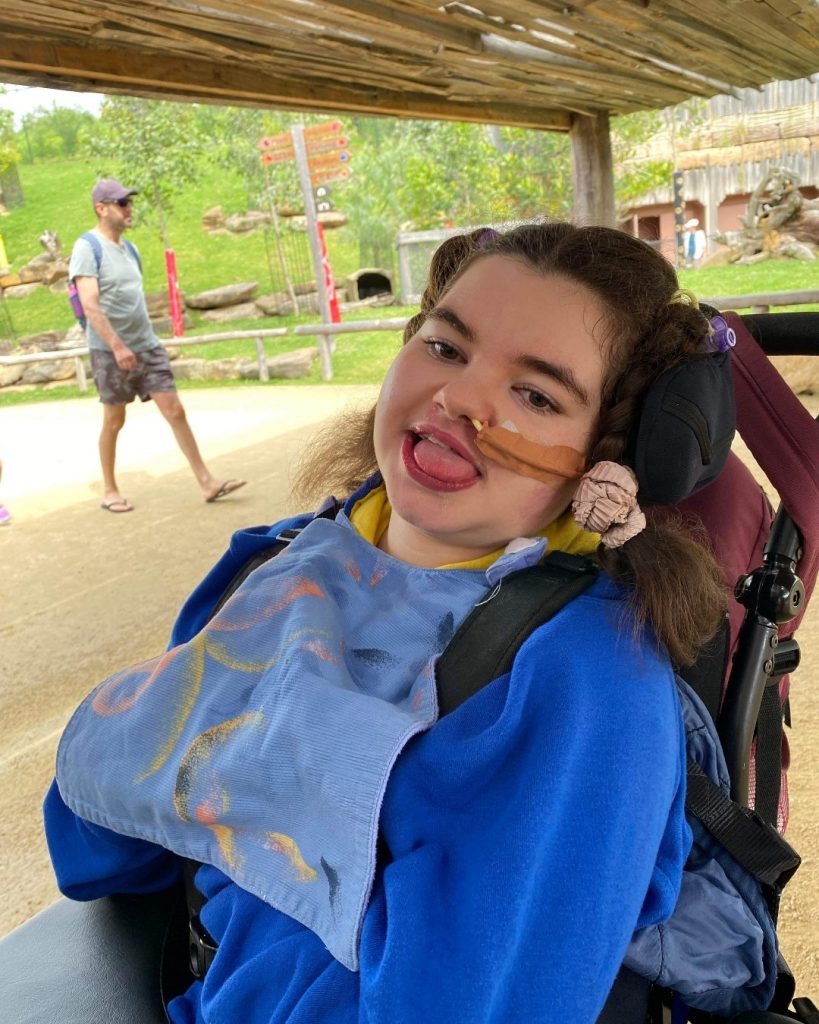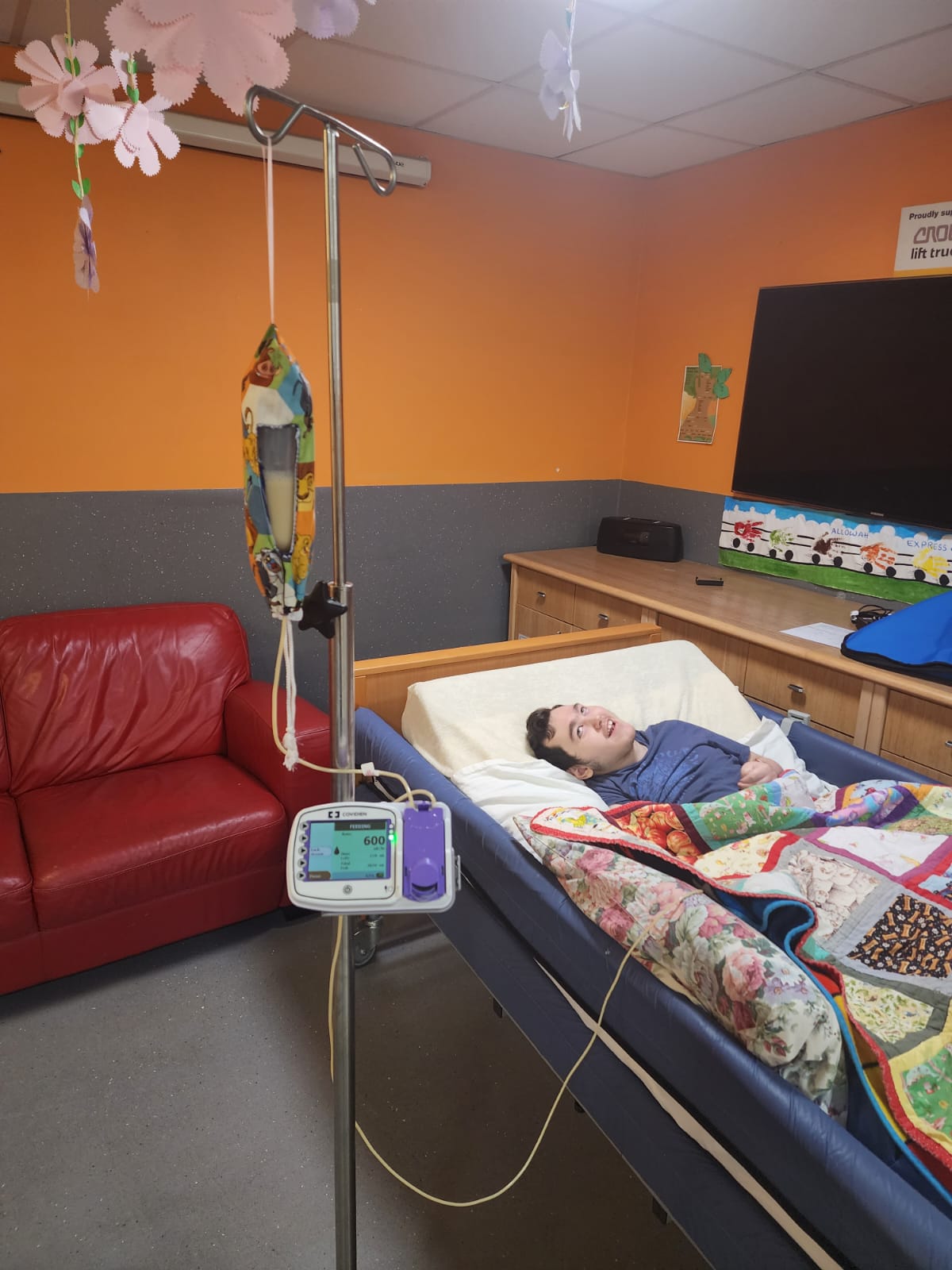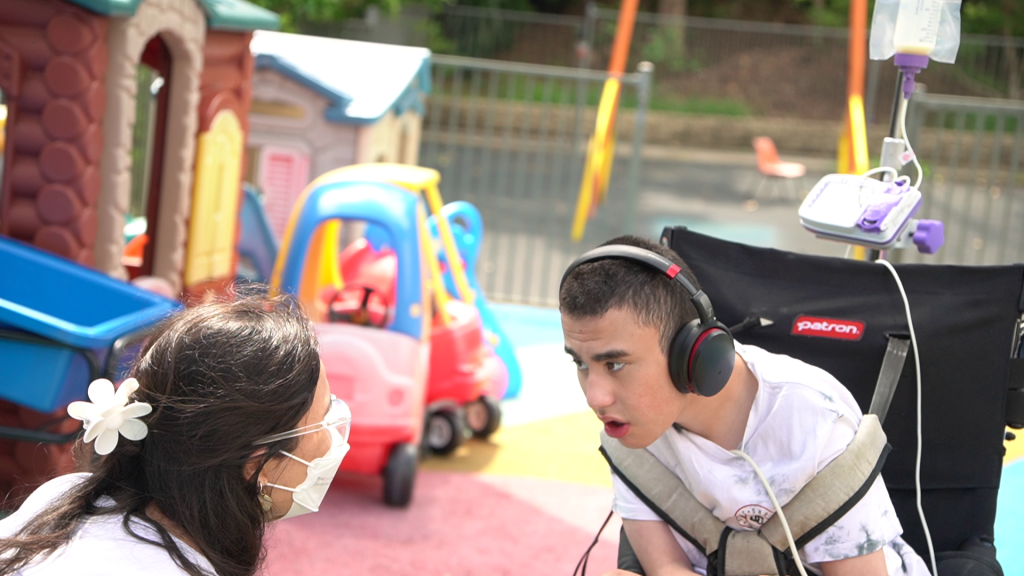For many kids at Allowah, the feeding tube plays a very important role in their lives.
In the late 1800’s, a medical professional invented a device which would forever change the lives of those who struggled with eating, swallowing and digestion. Enteral feeding, or tube feeding, has come a long way since then and continues to greatly improve the lives of many.
There are two major categories of enteral feeding.
Nasogastric Feeding
Nasogastric Feeding is where the thin, plastic feeding tube is threaded through the nose into the stomach or bowel. This is most commonly used when the need for nutritional help and medication is predicted to be relatively short term. Because it can be easy for the tube to be internally shifted, the position of it should be checked regularly. Other than these checks, nasogastric feeding is highly effective and to a certain extent, unobtrusive. It is amazing to be able to control nutrition even when an individual’s digestive system is not playing ball!
Gastrostomy Feeding
Gastrostomy tubes are inserted directly into the stomach or bowel through the skin that delivers nutrition directly into the stomach. This is usually done with the need for tube feeding is expected to be long-term. A gastrostomy is a short feeding tube that goes directly into the stomach through a surgical incision called a stoma. The insertion of this tube is a safe procedure with few common complications. It is often more traumatic and life changing to have this kind of feeding tube, rather than one inserted into the nose.

Benefits
The benefits of feeding tubes are many – they are a life-giving instrument for lots of people living with disabilities. When digestion or eating is hampered by disease or impairment, nutrition becomes a key concern. Making sure there isn’t weight loss or illness caused by a lack of food is very important for ensuring overall wellbeing. The body cannot heal, repair or develop properly with insufficient nutrition so food is key! So, when someone cannot process this food naturally, a solution is needed. That is where tube feeding is a life-saver, literally. Tube feeding allows an individual to receive the proper nutrition they need, even when they cannot participate in this process fully.
Issues
While tube feeding is essential, it is not without its issues. Enteral feeding can be a tiresome process, requiring consistent medical attention to make sure the system is functioning well. The procedures can bring discomfort and worry. Particularly for patients with long-term need for feeding tubes, the concern about emotional well-being is real. Food, while obviously important for our physical bodies, is not physical alone. The enjoyment of eating – texture, colour, temperature and taste – is a key part of how and why humans seek nutrition. By largely removing these elements from the eating process, extra psychological concerns are introduced. Eating is also often a social activity and this can bring additional pressures to those relying on tube feeding.


Tube feeding is important in the lives of many of the children we care for here at Allowah. It allows them to get important nutrition which they would otherwise struggle to obtain. However, tube feeding can be complicated.
We are thankful for the medical professionals at Allowah who help us care for children who use tube feeding!
Dietetics & Nutrition
Talk to our team about your child's nutrition needs and how we can cater to their requirements during a stay at Allowah.
Read more4-10 February is Feeding Tube Awareness Week

